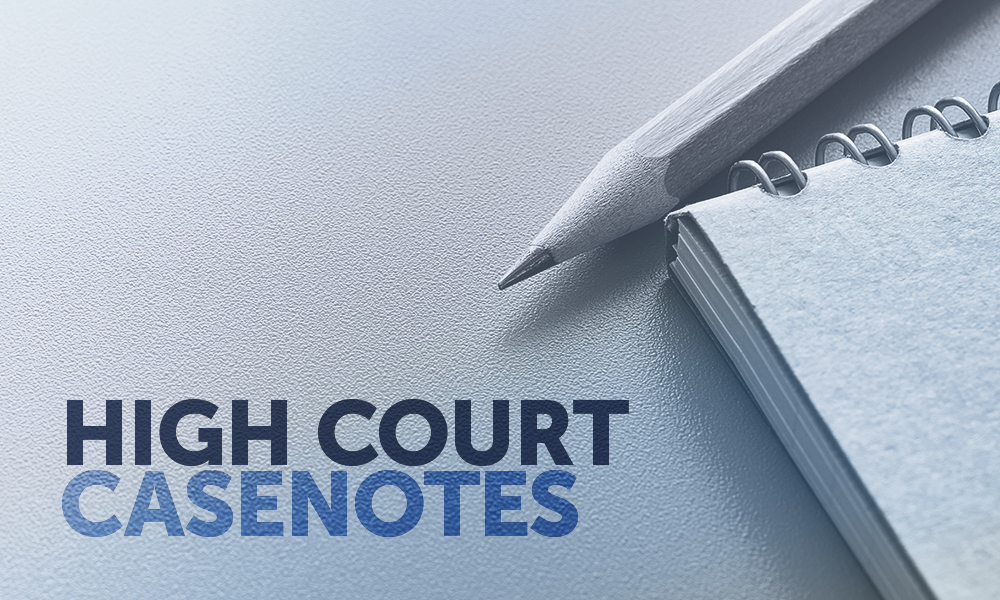The recent English case of PCP Capital Partners LLP and another v Barclays Bank Plc1 has created some ripples in the English profession, in regard to its treatment of privilege.
In brief, the parties were in dispute over the legitimacy of a set of agreements – PCP held the agreements were shams, Barclays that they we legitimate. Barclays had been the subject of criminal proceedings with respect to the agreements, and had defended itself on the basis that it had taken and followed legal advice.
This matter was a part of the course of civil proceedings regarding the same agreements, with PCP seeking the disclosure of the legal advice on the basis that the references to it constituted waiver of privilege. This claim was met by Barclays, in effect, taking the (generally accepted) position that as the reference was to the effect of the advice and not its contents, no waiver had occurred.
Justice Waksman took a different approach, focusing on whether or not there had been reliance on the advice, and noting “…the fact that only the conclusion of the legal advice referred to is stated as opposed to the detail of the contents may not prevent there being a waiver”.2
His Honour found that the distinction between the effect and content of an advice must be considered in the light of three factors:
- whether there is any reliance on the privileged material adverted to
- what the purpose of that reliance is, and
- the particular context of the case in question.3
Justice Waksman found that in this case waiver had occurred, as there had been a clear reliance on the advice, and indeed the advice itself was the very reason Barclays contended that the agreements were legitimate.
The position in Australia
The mere reference to the existence of legal advice is not sufficient to waive privilege,4 nor is reliance on that advice.5 The Australian test remains whether or not the conduct is inconsistent with the preservation of privilege, which will involve an assessment as to whether or not the substance of the advice was referenced – see Bennett v Chief Executive Officer of the Australian Customs Service6 (Bennett).
However, that is not necessarily entirely inconsistent with the English position. In Bennett it is clear that the court did look at the issue of reliance on the advice. Tamberlin J noted (at 13):
“The weight of the authorities, in my view, supports the conclusion that the disclosure of the conclusion reached in or course of action recommended by, an advice can amount to waiver of privilege in respect of the premises relating to the opinion which has been disclosed, notwithstanding that this reasoning is not disclosed.”
Gyles J – who joined with Tamberlin J in finding waiver had occurred in that case – noted (at 68):
“The authorities to which I have referred show that it is well established that for a client to deploy the substance or effect of legal advice for forensic or commercial purposes is inconsistent with the maintenance of the confidentiality that attracts legal professional privilege.”
These statements indicate that Australian courts might well be prepared to find waiver of privilege in circumstances where advice is referred to in order to justify a course of action, or bolster a claim that an appropriate position had been taken. Practitioners should take great care in making reference to advice received, and ensure that they do not disclose its substance.
What is also clear, however, is if the advice itself is the very reason for taking certain actions, it may be subject to challenge in any event. In the PCP v Barclays decision, it is clear that Justice Waksman found that the lawyers were heavily involved in the entire process – noting that they were closely involved in the negotiations (at 92) and had approved the transactions in question as lawful (at 99).
In short, the preservation of privilege is assisted greatly by maintaining the independence that is fundamental to the role solicitors play. Allowing that line to blur can be a solicitor’s first step towards waiver – and the witness box.
Footnotes
1 [2020] EWHC 1393 (Comm).
2 At [60].
3 Ibid.
4 Assistant Treasurer and Minister for Competition Policy and Consumer Affairs v Cathay Pacific Airways Limited [2009] FCAFC 105.
5 Osland v Secretary to the Department of Justice [2008] HCA 37 (7 August 2008).
6 [2004] FCAFC 237.








Share this article